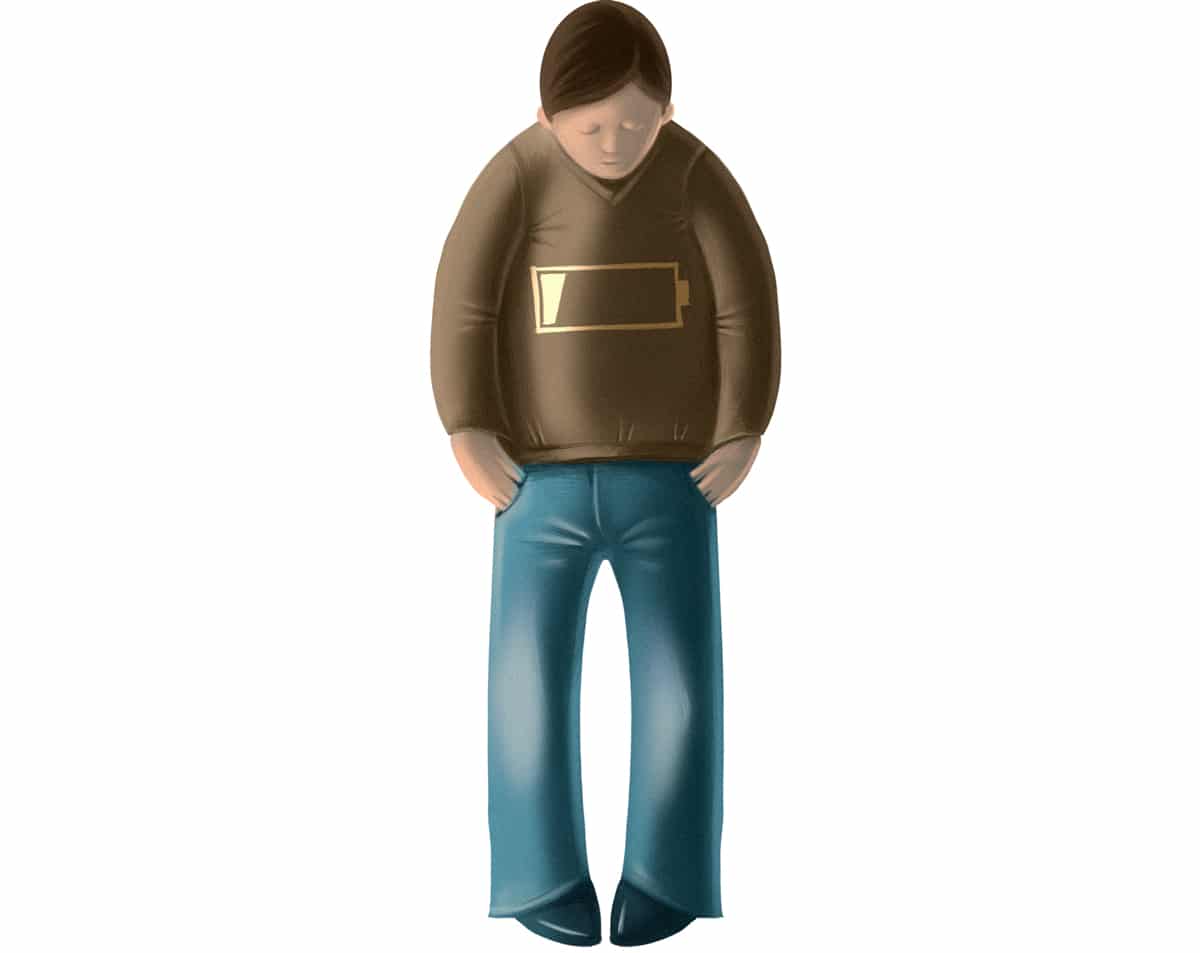At some point, most of us have picked up the idea that we should try to get rid of negative thoughts and emotions – turn our frowns upside-down, focus on the positive, count our blessings, and argue against negative thoughts until we push them to the back of our minds. When we see people complaining, we encourage them to take a better attitude and look for bright side of the situation instead of focusing on the negative.

We do make temporary exceptions for serious grief – after a death in the family, nobody’s going to come up to you at the funeral and start telling you to cheer up and get over it. But when it comes to everyday annoyances and bad moods that don’t have the “excuse” of a tragedy, our typical response is along the lines of “stop complaining and fix your attitude.”
Diet is definitely in that second category of everyday annoyances that don't get any reprieve from the demands to always be positive. People who complain about Paleo often get advice like “You’re choosing to feel deprived by thinking about foods you can’t have; just focus on all the delicious things you can eat!” or “Stop complaining about how long the cooking takes. Isn’t your health worth it? Just take a positive attitude and learn to enjoy it!”
It seems so completely obvious that negative thoughts are bad and unhelpful – who would want to feel deprived about their diet or dominated by all the time they spend in the kitchen? Emotional pain hits us in the same areas of the brain as physical pain; in some sense, it literally “feels painful” to your brain, and the reflex to make it go away is very strong.
But there’s another similarity between negative emotions and physical pain: both of them are often symptoms of something bigger. Physical pain is unpleasant, but the answer isn’t to mainline ibuprofen to treat the pain; it’s to figure out the cause of the pain and address that. And in that sense, pain is valuable, because it lets you know that something is wrong.
That’s the value of negativity: just like pain, unhappiness is a warning light. Unhappiness can point to a problem, and often it’s a problem that deserves an actual solution, not just an attitude adjustment. Fixating on positive thinking to address unhappiness is like taking a painkiller: it doesn’t actually address the underlying cause.
The urge to complain about Paleo points to something that isn’t working for you. Even if you think the reason is silly (“I don’t waaaaaaant to spend 10 minutes after every meal doing dishes; it takes too long and the water is icky!”), your unhappiness has a reason. Instead of trying to dismiss it or positive-attitude your way out of it, why not sit with that unhappiness, really give it your attention, and try to figure out what’s actually causing it?
Why are you Really Complaining About Paleo?
There could be are all kinds of reasons! And many of them have nothing to do with “just being whiny for no reason” or “needing to cheer up.” Here are some common complaints about Paleo, with some possible causes.
“Ugh, my whole life is shopping and cooking.” – it could be that your current approach to Paleo really is placing unreasonable demands on your time and energy.
- You’re spending unnecessary amounts of time grocery shopping and cooking.
- You haven’t learned to batch cook
- Your kitchen isn’t organized efficiently.
“I’m hungry all the time.” – it could be that your diet really is unsatisfying (which is not OK; you deserve a fix for that).
- You’re not eating enough, or you’re not eating enough high-quality protein, fat, and vegetables at every single meal.
- Your version of Paleo is too low in carbs for your particular body, even if it’s adequate in calories.
“I feel so deprived and restricted!” – it could be that your diet really is overly restrictive.
- You’re avoiding nightshades or nuts or eggs even though you don’t have an autoimmune disease.
- You’re avoiding high-FODMAP foods even though you have no problems with them.
- Your diet would be fine in ideal circumstances, and it may have worked for you before but in your current environment it’s asking you to make unreasonable sacrifices.
- Your diet is a bad match for your personal eating style.
A lot of these problems are quite simple to fix once you get past the need to fight negative emotions themselves and start looking for their causes. It’s much easier to sit down and think about what kind of diet works for your eating style than it is to constantly force yourself to “take a positive attitude” towards something that just doesn’t work for you.
None of this is saying that it’s good to be negative and complain all the time. The point is not that feeling deprived and restricted are good things. The point is that addressing the root cause of those feelings is more helpful than trying to will them away with “positivity.”
But What if I Can’t Fix the Root Cause?

Even if you don’t act on the ultimate cause of your negative feelings, it’s always valuable to know what the cause actually is.
Sometimes feeling deprived or restricted is just your inner toddler throwing a temper tantrum because it wants sugar and you’re not giving it sugar. Sure, the unhappiness is still pointing to a problem, but the problem is a biological drive conditioned by thousands of years of evolution, and fixing the root problem (probably blood sugar dysregulation or psychological dependence on food) involves a period where you’re just going to have to ride out the pain, cravings, and feelings of deprivation. Other times, it’s a problem that you’re working on but you’re already doing everything you can and it may not ever be solved completely.
Even in those cases though, it still helps to recognize the emotion as a symptom and be kind to yourself about it. It’s OK and perfectly normal to feel cranky and deprived about giving up sugar. You’re flying in the face of millennia of survival programming!
To go back to the physical pain metaphor, this would be a great time to take a painkiller if you have one, in the form of a distracting book, a feel-good movie, or whatever else makes you feel better. And in fact, you might find that accepting the emotion and giving yourself permission to feel it actually makes it easier to move past it and focus on other things.
Summing it Up
Unhappiness or the urge to whine about your diet is a little bit like physical pain: it isn’t a problem itself so much as it points to a problem somewhere else. And often those problems deserve to be addressed. That’s the value of negativity and complaining: it clues you in to a problem. Instead of trying to positive-attitude your way out of feeling deprived or unhappy about Paleo, focus on the problem – what is it, and can you fix it?
Just like physical pain, fixing the underlying problem if you can is usually a better solution than treating the symptom. Just like physical pain, sometimes that problem will eventually work itself out, and all you have to do is ride out the symptoms until it fades (in which case encouragements to "be positive" may or may not be helpful to you, depending on your personality). Just like physical pain, sometimes the problem has no permanent solution, and in that case, working on your attitude can be helpful as a painkiller, but have compassion for yourself – you’re not just being whiny for no reason.
Nobody ever said that you can’t combine painkillers with treatment for the underlying problem. You can address the real cause of your unhappiness while also encouraging yourself to take a positive attitude towards Paleo. But the point is that if you assume that all unhappiness and complaining is “just whining” and respond with a barrage of attitude adjustments, you might be missing something completely fixable that you could do to address the root cause.





Leave a Reply